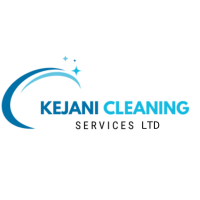Maintaining a clean and tidy office environment is crucial for employee well-being, productivity, and overall business image. However, even with the best cleaning services, complaints can arise. Addressing office cleaning complaints promptly and effectively is essential to ensure a pleasant work environment and maintain trust in the cleaning staff. In this blog post, we’ll explore how to handle office cleaning complaints, prevent future issues, and create a cleaner, more enjoyable workplace.
Why Office Cleaning Complaints Matter
Complaints about office cleanliness can stem from various issues, such as unclean restrooms, dusty desks, overflowing trash bins, or unmaintained common areas. Ignoring these complaints can lead to a negative work environment, decreased employee morale, and even health issues. Addressing these concerns not only improves the office atmosphere but also demonstrates a commitment to employee satisfaction and workplace hygiene.
Common Office Cleaning Complaints
Before diving into solutions, it’s important to understand the common types of office cleaning complaints:
- Unclean Restrooms: Complaints about dirty restrooms often top the list. Issues may include a lack of soap, empty paper towel dispensers, and unsanitary conditions.
- Dust and Allergens: Dusty surfaces, vents, and carpets can aggravate allergies and create an unprofessional appearance.
- Overflowing Trash Bins: Regular emptying of trash bins is essential to prevent unpleasant odors and maintain a clean workspace.
- Unclean Common Areas: Break rooms, kitchens, and lounges are often high-traffic areas that require frequent cleaning.
- Inconsistent Cleaning Quality: Variability in cleaning standards can lead to frustration among employees.
Steps to Address Office Cleaning Complaints
1. Listen and Acknowledge
The first step in addressing any complaint is to listen to the concerns raised by employees. Acknowledge their feelings and assure them that their feedback is valued. This initial response sets the tone for resolving the issue and shows that the company takes cleanliness seriously.
2. Investigate the Complaint
Once a complaint is received, investigate the situation thoroughly. This may involve speaking with the cleaning staff, reviewing cleaning schedules, and inspecting the area in question. Understanding the root cause of the problem is essential for implementing an effective solution.
3. Implement Immediate Solutions
Address any urgent issues immediately. For example, if restrooms are reported as unclean, ensure they are cleaned promptly. Taking swift action demonstrates a commitment to maintaining a clean environment.
4. Communicate with the Cleaning Staff
Discuss the complaint with the cleaning staff or service provider. Ensure they understand the concern and work collaboratively to prevent similar issues in the future. Regular training and communication can help maintain consistent cleaning standards.
5. Follow Up with Employees
After addressing the complaint, follow up with the employees who raised the concern. Ensure they are satisfied with the resolution and inquire if there are any ongoing issues. This follow-up shows that the company values employee feedback and is committed to continuous improvement.
6. Review and Improve Cleaning Protocols
Review existing cleaning protocols and schedules. Consider implementing more frequent cleanings for high-traffic areas or areas with specific complaints. Regularly update cleaning procedures to align with best practices and industry standards.
7. Encourage a Culture of Cleanliness
Promote a culture of cleanliness within the office. Encourage employees to maintain their workspaces and report any cleanliness issues they encounter. Providing adequate supplies, such as disinfectant wipes and hand sanitizers, can empower employees to contribute to a clean environment.
Preventing Future Office Cleaning Complaints
1. Regular Inspections
Conduct regular inspections of the office to identify potential issues before they become complaints. A proactive approach can help maintain a high standard of cleanliness.
2. Clear Communication Channels
Establish clear channels for employees to report cleaning issues. This could be through an internal portal, email, or a dedicated phone line. Ensure that employees feel comfortable raising concerns without fear of repercussions.
3. Feedback Surveys
Periodically survey employees to gather feedback on the cleanliness of the office. This can help identify areas for improvement and gauge overall satisfaction with the office cleaning services.
4. Hire a Professional Cleaning Service
If complaints persist despite efforts to address them, consider hiring a professional office cleaning service with a strong reputation. A reliable service can provide consistent and high-quality office cleaning, reducing the likelihood of complaints.
Conclusion
Addressing office cleaning complaints effectively is crucial for maintaining a positive work environment and demonstrating a commitment to employee well-being. By listening to concerns, implementing solutions, and continuously improving cleaning protocols, companies can ensure a clean and welcoming office space. Remember, a clean office is not just about aesthetics; it’s about creating a safe, healthy, and productive workplace for everyone.
By following these steps and fostering a culture of cleanliness, businesses can minimize office cleaning complaints and enhance the overall employee experience. Don’t underestimate the impact of a clean office—it’s a key factor in employee satisfaction and productivity.

0 Comments